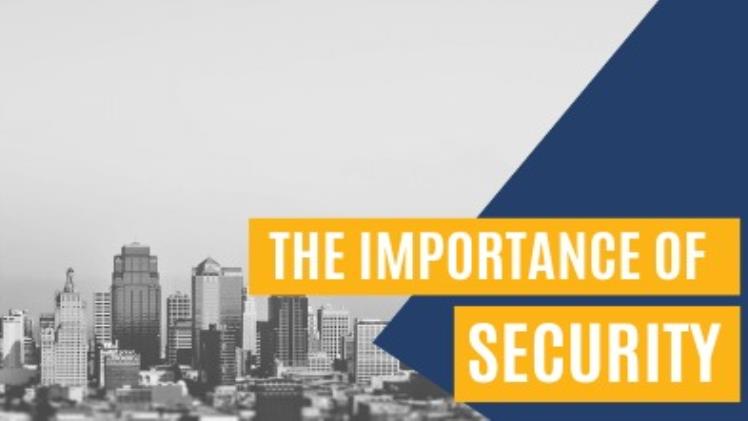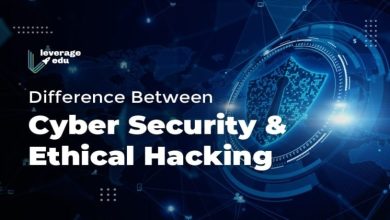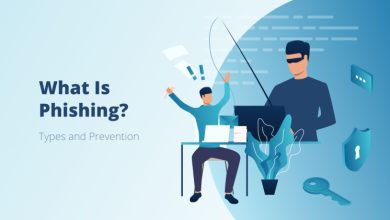The Importance of Security

Security services focus on safeguarding people, property and information – from fencing and gates to cameras for deterring crime – while also including company IT policies and procedures.
Data protection tools include encryption that obscures information so only those with a private key can read it; network segmentation that limits damage caused by breaches to specific zones; and alert prioritization that prioritizes security events.
Protecting People and Property
Security can take many forms, from physical protection measures and cyber protocols to employee training programs and employee assessments. By regularly reviewing these measures, organizations can reduce the risk of security breaches while protecting their most prized possessions.
Physical security consists of safeguarding people and property by creating barriers that deter unauthorised entry, such as fencing, gates, barbed wire and patrols. Furthermore, entrances and exits should be secured, with employees being escorted to and from meetings and surveillance cameras deployed as preventative measures.
Cybersecurity refers to policies, processes and tools implemented within an organization in order to secure its data from unauthorised access or manipulation. This may involve encryption – turning plain text into code with an algorithm – or tokenization which assigns unique values for pieces of information. Furthermore, cybersecurity can include detection, prevention and response measures against threats targeting endpoint devices like malware.
Creating a Sense of Safety
Security measures can protect people and property against physical threats like theft, vandalism, or unwanted intruders. Furthermore, they can protect information technology systems against cyberattacks like data breaches and hacking that threaten them with harm.
Security management is the practice of cataloguing enterprise assets and developing policies and procedures designed to oversee, respond to and resolve threats against them – such as employing firewalls and encryption tools – effectively.
Engaging employees in workplace safety measures promotes a positive working environment and gives every member of the company a sense of pride at playing an essential role in its success. Engaging them also can reduce insurance claims related to security gaps – for instance if an employee loses work documents due to a breach, they could file an insurance claim in order to recover any damages they might incur as a result.
Maintaining Law and Order
Security guards deter criminals from engaging in unlawful behavior by deterring theft, vandalism, robbery and other forms of offense in an area. Furthermore, security professionals monitor premises to report any activity.
Security Service work does not involve taking executive actions; in these instances, other agencies and departments take over. Because of this, we enjoy close ties with police forces and their Special Branch division.
Establishing strong rule of law institutions is crucial to providing immediate security and stability necessary for peacebuilding to take hold. This requires accountable police and intelligence services who respect human rights as well as transparent security measures that build trust among businesses – for instance a real-time tracking solution can prevent data breaches.
Deterring Crime
An effective and easy way to deter crime is through enhanced security measures, such as installing security cameras, hiring additional guards, and increasing police patrols. Such measures convey a message that an area is being closely watched and protected, encouraging potential criminals to choose another target location instead.
Other active deterrence measures can include sirens or voices to warn an offender – for instance, the Vivint Outdoor Camera Pro features a built-in 104 decibel siren that can be activated remotely to warn any intruder. Security also refers to tools and processes businesses employ to safeguard data against unauthorism; this field is commonly known as information security (InfoSec). InfoSec protects sensitive information from inspection, modification and disruption by any means necessary.
Protecting Data
Data is one of a company’s most valuable assets and should be protected with security measures to avoid security breaches and hacks that encrypt personal information like payment card data or healthcare records, or simply human error like clicking on malicious links or losing devices, all can cause irreparable harm to its reputation, leading to lost revenues, incident response expenses, legal fees, compliance fines and potential customer trust loss.
Implementing data protection tools such as password management, multi-factor authentication and regular software updates can provide essential protections. Furthermore, technology such as data discovery and classification as well as central management with visibility into how and where data is being utilized or moved within an environment can improve data security significantly.
Encryption provides another benefit by rendering information unusable if intercepted by malicious actors.





